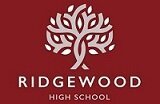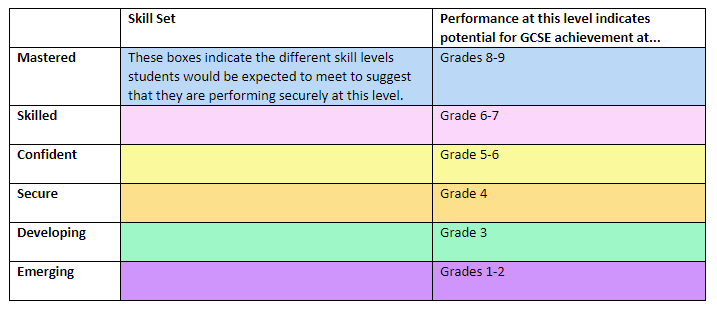Key Stage 3 Assessment
At Ridgewood High School, we see Key Stage 3 as one progression journey, as opposed to three individual years. This begins when students start with us Year 7 and culminates at the end of Year 9, when students select their options subjects for study in Key Stage 4 (Year 10 and Year 11). Those subjects that are selected for study in Key Stage 4 pick up the learning journey, as students work towards external qualifications.
We use assessment to determine how well our students are performing, and in KS3, teachers and leaders have worked closely to ensure that the ways in which students are assessed fulfil our core purpose. This core purpose is to…
Ensure that students know how they are performing in their subjects
Ensure that students know what they need to do to make further progress in their subjects
Ensure that students can talk brilliantly about their own learning journeys
Allow teachers to track and monitor student progress and put appropriate support in place for those students who need it.
In Key Stage 3, each subject uses a rubric to determine the level that a student is performing at. These rubrics cover the skills and knowledge that will be taught and assessed in Key Stage 3 study. It is important to us that these rubrics cover the whole of Key Stage 3, not just one year group. This means that there are no glass ceilings for students, and this reflects our commitment to challenging our most able learners, whilst ensuring there is high quality support for those who are vulnerable in their learning. Rubrics have been carefully put together with the end goal in mind. The end goal is ensuring that all students, as an absolute minimum, are ready to access KS4 study, by the end of Year 9. We do however, recognise that this will look different from student to student given variances in ability.
KS3 rubrics look like this:
Are these descriptors linked to GCSE outcomes?
When designing our rubrics, we deliberately avoided this simply becoming a drop down of GCSE criteria. We believe that curriculum should be more than just repeating material students will cover in Key Stage 4. Our curriculum offer is broad and balanced and provides opportunities for students to study lots of different subjects, for an extended period. Our KS3 curriculum does effectively prepare students for study in KS4 in this way.
How have you determined my child’s target grade for the end of Key Stage 3?
Students will be given target grades for the end of Key Stage 3, in their subjects. They will have these noted on the front of their exercise books. These are linked to an End of Key Stage 4 target, which students will receive at the start of Year 10. These targets are calculated for us, based on a student’s performance at the end of Key Stage 2 (SATs), and will determine how much progress a student is likely to make. Whilst target grades are significant, they are not something to be worried about. Many children will exceed their targets, which is wonderful, whilst others will take longer to meet them. At Ridgewood, we recognise that many factors contribute to the performance of a student, lots of which take place outside of school. Ultimately, we want our students to work as hard as they can, experience lots of success, and also know what to do when confronted with challenge or difficulty.
How much progress is my child likely to make over Key Stage 3?
Rates of progress differ considerably from child to child but we would expect most children to move upwards by around two grade descriptors, over the course of KS3. For example, if a child entered Year 7 at ‘Secure’, we would expect them to be working at ‘Skilled’ by the end of Year 9. It is important to know that is not an exact science and lots of other factors play a part in how much progress a child is likely to make. The rates of progress children make are reviewed regularly by teachers, faculty leaders, and senior leaders, and where we have concerns, we will ensure support is put in place.
What are fine grades?
It is important to understand that each descriptor is quite broad in what students are expected to do, and so we have split each descriptor into three fine grades. These are denoted by using + = - next to each descriptor to indicate the security in each grade. These will show on your child’s academic report that they receive.
If you do have any questions about how we use assessment at KS3, please do not hesitate to contact Mr Cannon using progress@ridgewood.dudley.sch.uk.


